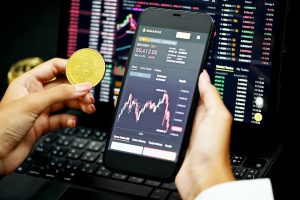The foreign exchange market, commonly referred to as forex, is the largest financial market in the world. It is a decentralized market where currencies are traded 24 hours a day, five days a week. The forex market is essential for international trade and investment, as it allows businesses and investors to convert one currency into another. However, the forex market has not been immune to changes and developments over the years. In this article, we will explore what has happened to the forex market and how it has evolved.
The forex market has undergone significant changes since its inception in the 1970s. One of the most significant changes was the abandonment of the gold standard in 1971. The gold standard was a monetary system where the value of a currency was directly linked to the value of gold. The abandonment of the gold standard led to floating exchange rates, where the value of a currency is determined by market forces such as supply and demand. This change paved the way for the development of the forex market as we know it today.
Another significant development in the forex market was the introduction of electronic trading platforms in the 1990s. Before electronic trading, forex trading was conducted over the phone or through brokers. Electronic trading platforms allowed traders to buy and sell currencies directly, reducing transaction costs and increasing efficiency. Electronic trading platforms also made the forex market more accessible to retail traders, who previously had limited access to the market.
In recent years, the forex market has faced new challenges and opportunities. One of the most significant challenges has been the rise of cryptocurrencies. Cryptocurrencies such as Bitcoin and Ethereum have gained popularity as alternative forms of currency, with some people seeing them as a potential replacement for traditional fiat currencies. The rise of cryptocurrencies has led to increased interest in blockchain technology, which underpins most cryptocurrencies. Blockchain technology has the potential to revolutionize the forex market by increasing transparency and reducing transaction costs.
Another opportunity for the forex market has been the growth of emerging markets. Emerging markets such as China, India, and Brazil have seen significant economic growth in recent years, leading to increased demand for their currencies. This growth has led to the creation of new currency pairs, such as USD/CNY (US dollar/Chinese yuan) and USD/INR (US dollar/Indian rupee). The growth of emerging markets has also led to increased volatility in the forex market, as these economies are often more susceptible to political and economic risks.
The forex market has also faced challenges from regulatory bodies. In the aftermath of the global financial crisis of 2008, regulatory bodies around the world introduced new rules and regulations aimed at increasing transparency and reducing risk in the financial markets. These regulations have impacted the forex market, with increased reporting requirements and restrictions on certain types of trading activity.
In conclusion, the forex market has undergone significant changes and developments over the years. From the abandonment of the gold standard to the rise of cryptocurrencies, the forex market has adapted to new challenges and opportunities. While the forex market faces new challenges from emerging markets and regulatory bodies, it remains an essential part of the global financial system. As the world becomes more interconnected, the forex market will continue to play a crucial role in facilitating international trade and investment.





